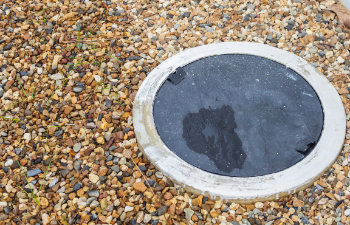
Running a restaurant on a septic system presents unique challenges that differ significantly from establishments connected to municipal sewer lines. At Metro Septic in Cartersville, we specialize in helping local restaurants manage their septic systems efficiently. Here are ten essential insights every restaurant owner should consider:
1. Understand Your Septic System’s Capacity
Commercial kitchens generate substantial wastewater, often exceeding the capacity of residential septic systems. It’s crucial to ensure your system is appropriately sized to handle the volume of waste produced. Overloading can lead to system failures and costly repairs.
2. Regular Pumping is Essential
Due to the high volume of waste, restaurant septic tanks require more frequent pumping than residential systems. Depending on usage, scheduling pumping every 1 to 3 years is advisable to prevent sludge buildup and maintain system efficiency.
3. Install and Maintain Grease Traps
Grease, fats, and oils can clog your septic system, leading to backups and failures. Installing grease traps and ensuring they are cleaned regularly is vital. Neglecting this can result in hardened grease that’s difficult to remove and can damage your system.
4. Avoid Chemical Drain Cleaners
Harsh chemicals can kill the beneficial bacteria in your septic tank that help break down waste. Instead, opt for enzymatic cleaners that are septic-safe. This practice preserves the natural balance necessary for your system’s operation.
5. Train Staff on Proper Waste Disposal
Educate your employees about what should and shouldn’t go down the drains. Emphasize the importance of scraping plates into trash bins and not disposing of food scraps or grease in sinks. Proper training can prevent many common septic issues.
6. Monitor Water Usage
Excessive water can overwhelm your septic system. Implement water-saving practices, such as fixing leaks promptly and using water-efficient appliances. This not only conserves water but also extends the life of your septic system.
7. Keep Accurate Maintenance Records
Document all inspections, pumping, and repairs. These records help track your system’s health and are invaluable during health inspections or when selling your business.
8. Be Mindful of Landscaping
Avoid planting trees or shrubs near your drain field, as roots can infiltrate and damage the system. Additionally, refrain from parking vehicles or placing heavy objects over the septic area to prevent soil compaction and pipe damage.
9. Schedule Regular Inspections
Annual inspections by a professional can identify potential issues before they become major problems. Regular check-ups ensure your system complies with local regulations and operates efficiently.
10. Have an Emergency Plan
Despite best efforts, emergencies can occur. Establish a plan that includes immediate actions and contact information for a reliable septic service provider like Metro Septic. Quick response can mitigate damage and downtime.
Contact Your Septic Experts in Greater Atlanta
Maintaining a restaurant on a septic system requires diligence and proactive management. By understanding your system’s needs and implementing these practices, you can ensure smooth operations and avoid costly disruptions. Metro Septic is here to support your business with expert advice and services tailored to your unique requirements.
Need assistance with your restaurant’s septic system? Contact Metro Septic in Cartersville today for professional support and peace of mind.

